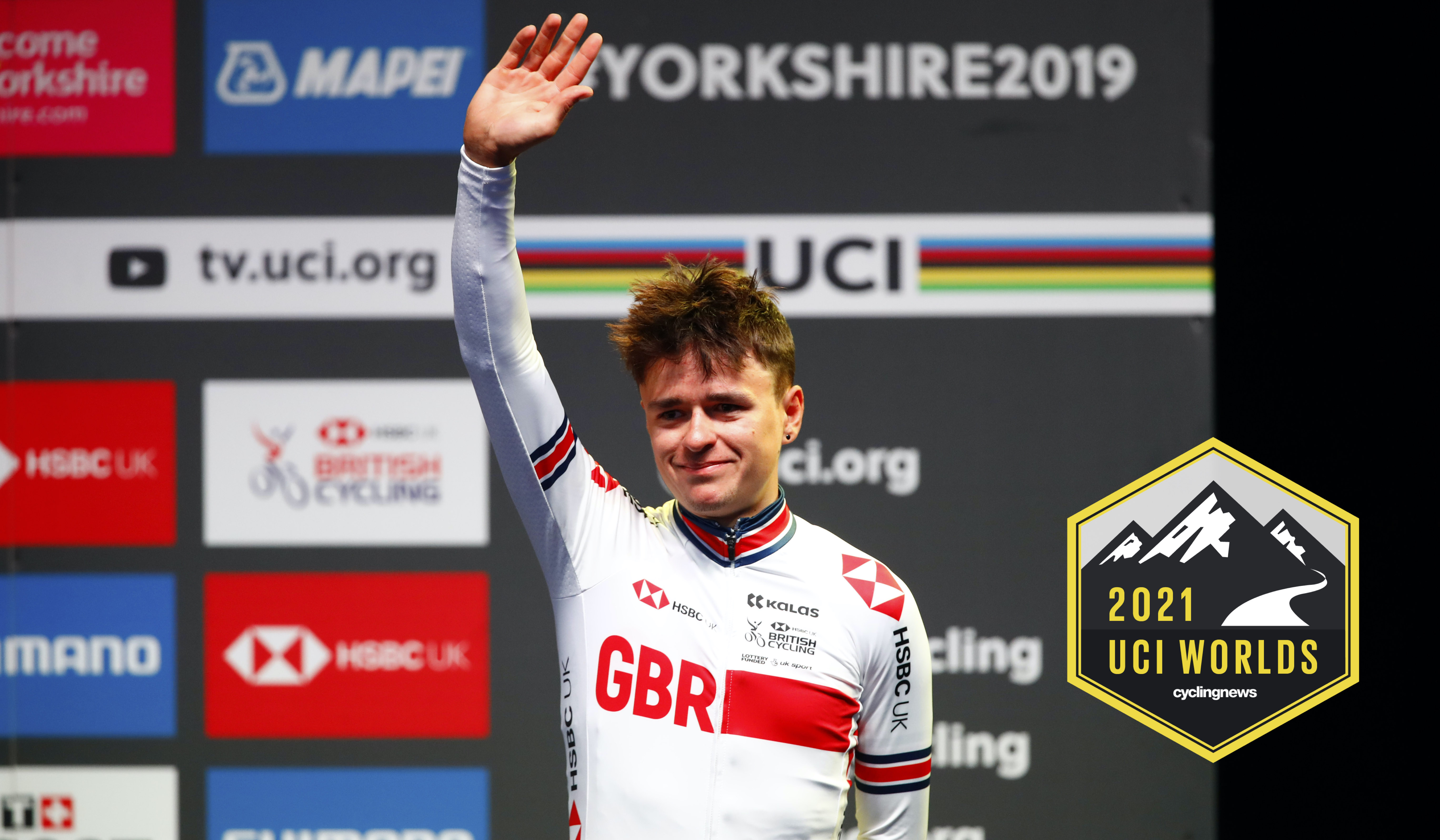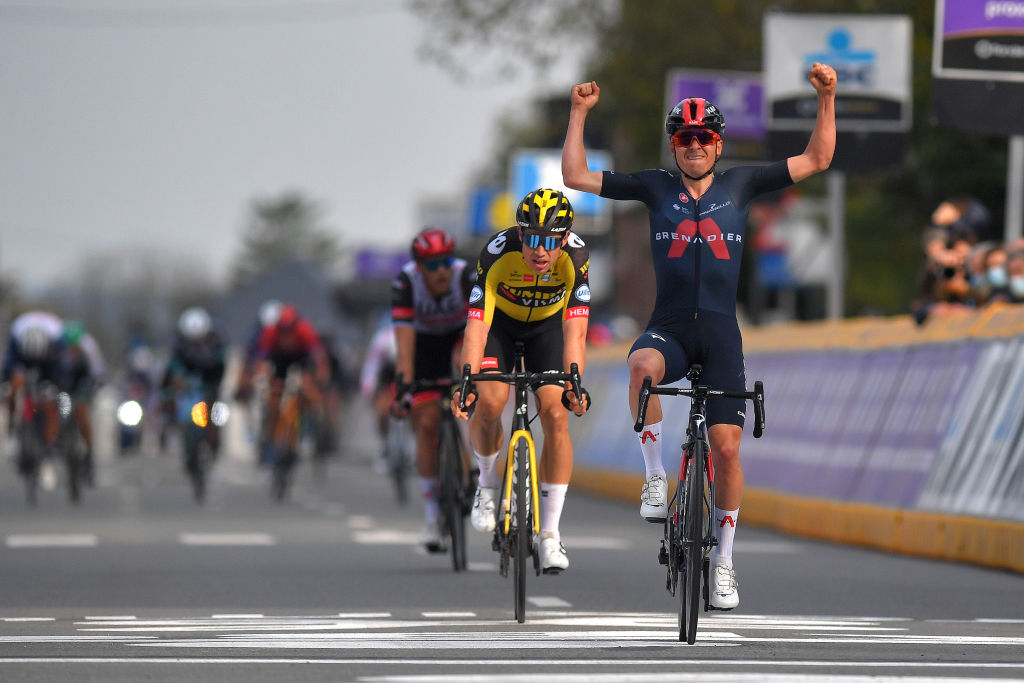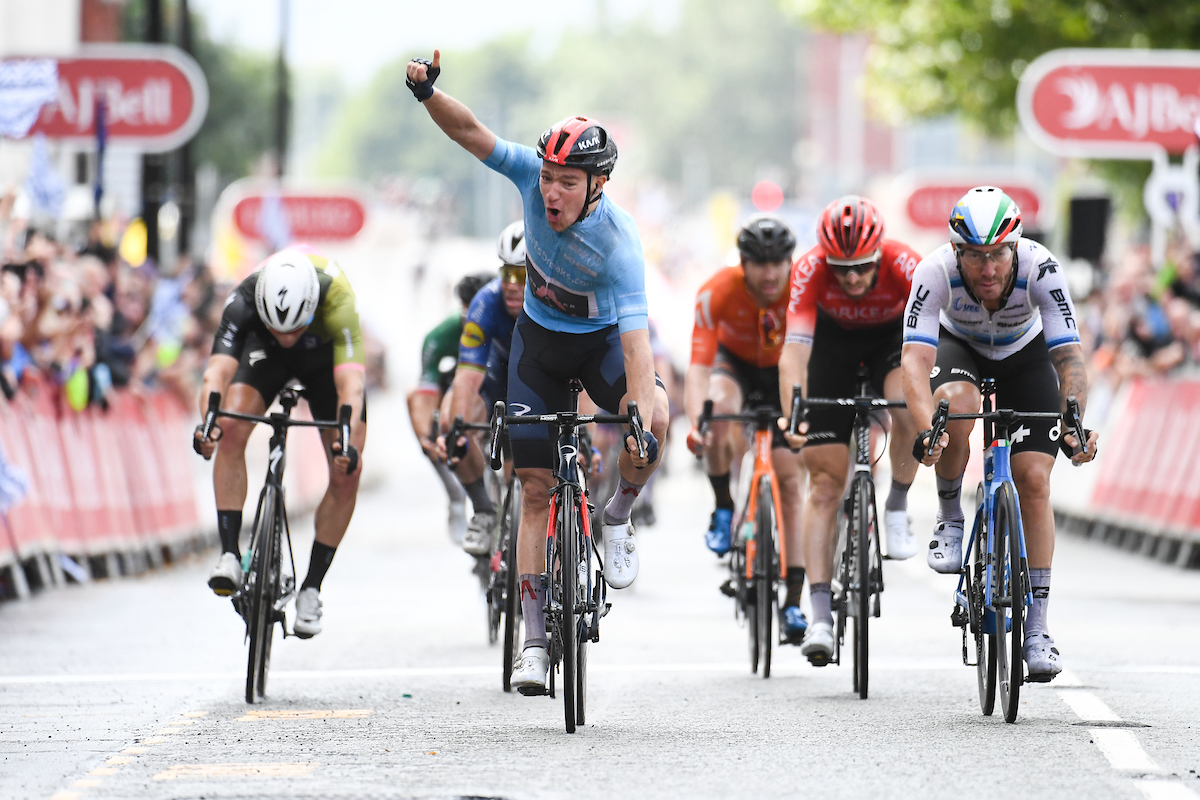State of the Nation: Analysing Great Britain's men's 2021 World Championships team
A developing group of young riders with a genuine contender in Tom Pidcock

Ahead of the 2021 UCI Road World Championships elite road races, Cyclingnews is taking a deep dive into the key teams.
History
It’s been 10 years since Mark Cavendish stormed into the rainbow jersey at the World Championships in Copenhagen in 2011 with a thoroughly choreographed but deserving performance.
Since then, the British men’s team have seen their fortunes fluctuate wildly, with Cavendish picking up a silver medal in 2016 and Ben Swift admirably flying the flag when called upon.
The nadir of 2013, when not a single British rider finished, was a low point but last year the team auditioned around Pidcock before he finally succumbed to the distance in the closing stages. You have to go back to 1965 and Tom Simpson to find the team’s first and only other rainbow jersey.
Line-up
- Tom Pidcock (Ineos Grenadiers)
- Luke Rowe (Ineos Grenadiers)
- Fred Wright (Bahrain Victorious)
- Jake Stewart Groupama-FDJ)
- Connor Swift (Arkea-Samsic)
- Ben Swift (Ineos Grenadiers)
- Mark Cavendish (Deceuninck-QuickStep)
- Ethan Hayter (Ineos Grenadiers)
Key riders
The British team arrive in Belgium with genuine depth to their roster, and a course that suits several riders, but their standout athlete is unquestionably Pidcock. On paper, he’s the only rider on the eight-man team who can – and has – gone toe-to-toe with the likes of Wout van Aert (Belgium) and Mathieu van der Poel (Netherlands) and come out on top.
His win in De Brabantse Pijl earlier this season will be a source of motivation and confidence but that race was 200km, so almost a full 70km less than what he will need to cover in Belgium later this month. His form is somewhat uncertain, and he hasn’t raced since the Vuelta a España but, in terms of medal hopes, everything goes through the Olympic mountain bike champion. He can handle the climbs and a variety of conditions, while his sprint in one-day racing is a real weapon.

Hayter, however, also deserves team protection during the opening hours of the race. The 22-year-old has enjoyed a breakout season at Ineos Grenadiers with a string of victories, and while there is a degree of uncertainty over Pidcock’s form due to his own coach’s comments, Hayter has been competing and winning in recent weeks. He’s not on the level of Van Aert, and he’s rarely gone beyond 260km in his career, but if Pidcock falters or needs a foil then Hayter is a worthy candidate.
Get The Leadout Newsletter
The latest race content, interviews, features, reviews and expert buying guides, direct to your inbox!
Luke Rowe has only finished the men’s road race once in his career with 88th place back in 2012, but he’s on the start line because of the heavy lifting he can do in the opening phases of the race and not because of his abilities in the finale. One of the best pound-for-pound domestiques in the world, the Welshman will be key when it comes to keeping Pidcock and the rest of the team well positioned and out of trouble and if the weather is poor then the 31-year-old’s role will be amplified should the race split earlier than expected. Rowe should be the nailed-on road captain.
Some might think that the presence of Cavendish is largely ceremonial given the 10-year anniversary of his greatest road triumph but that would belittle his all-round ability and experience. Coach Matt Brammeier has already indicated that Cavendish may not finish the race but his know-how and race craft will be instrumental both on and off the road. This is a relatively young team with limited Worlds experience but Cavendish’s presence changes that dramatically. Much more than just a sprinter, we’re likely to see the Manxman deployed in a less familiar but equally important role come September 26.
Strengths
Ben Swift, Cavendish, and Rowe aside, this is a young and vibrant team with a candidate for the rainbow jersey in Pidcock and a core of aspiring back-up talent.
Connor Swift, Stewart, Wright, and Hayter haven’t reached their full potential as professional riders but they are all on the up in terms of their career trajectories, and are well suited to the parcours of the race. Pidcock is the stand-out leader but should he falter due to form or bad luck, there are possible options further down the roster.
Pidcock, though, is a rare specimen and he’s one of just a handful of riders that can match the likes of Julian Alaphilippe and Van Aert, and if he has regained focus and dialed in his training then he could play a significant role in the race’s outcome. The team isn’t in the position of the Dutch and Belgians, so won’t have to control proceedings, and that could leave them with the required depth come the final all-important hour of racing.

Weaknesses
We’ve been here before with Great Britain sending strong rosters, talking the talk, but ultimately going missing when it matters most. Riders with enhanced reputations simply haven’t delivered in the one-day arena – with Yorkshire in 2019 being a prime example – and while there’s obvious depth, only Cavendish has been part of a winning Worlds team at the elite level.
There are slight question marks over how many of the team can go the distance if the race becomes brutally selective early on, while there’s no guaranteed plan B if Pidcock has an off-day. Hayter is promising and will race without pressure but he’s not yet a World Championship leader.
The view from Great Britain
Last year, the team rode for Pidcock to see how far the British rider could go, and although he faded in the closing stages due to the course and the distance, the early indications were that the squad gelled and found some much-needed direction and purpose.
Only three from the 2020 roster have returned this year due to the nature of the course and other selection criteria, but there’s a sense that this generation is developing with intent and that Brammeier has a genuine vision for the squad.
Pidcock faced questions at the start of the year over his durability and experience on the road but answers were delivered swiftly as the spring wore on and come Worlds he could well be on the podium.
Daniel Benson was the Editor in Chief at Cyclingnews.com between 2008 and 2022. Based in the UK, he joined the Cyclingnews team in 2008 as the site's first UK-based Managing Editor. In that time, he reported on over a dozen editions of the Tour de France, several World Championships, the Tour Down Under, Spring Classics, and the London 2012 Olympic Games. With the help of the excellent editorial team, he ran the coverage on Cyclingnews and has interviewed leading figures in the sport including UCI Presidents and Tour de France winners.
